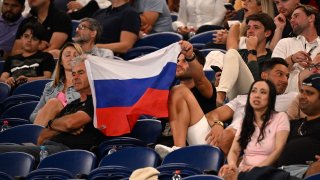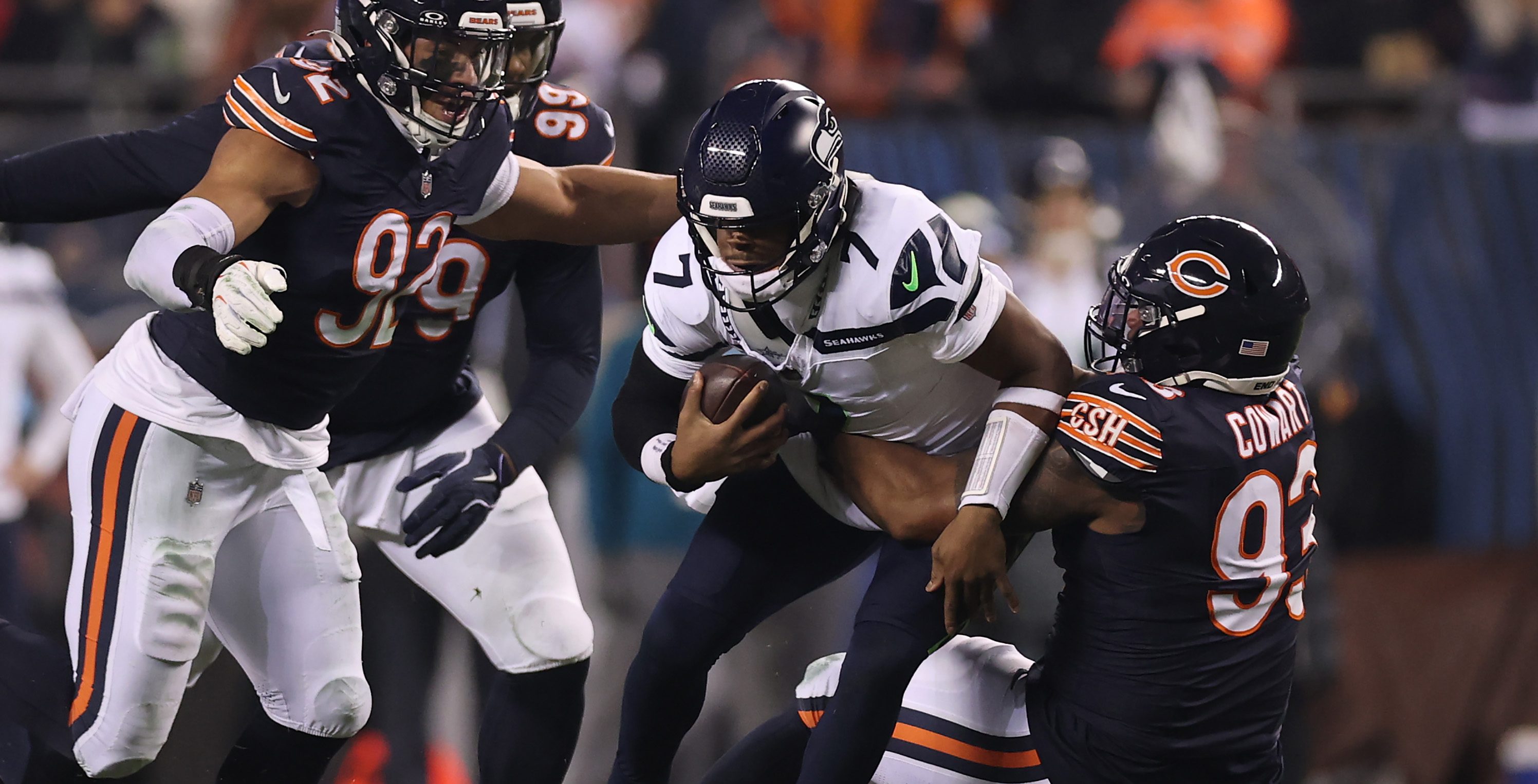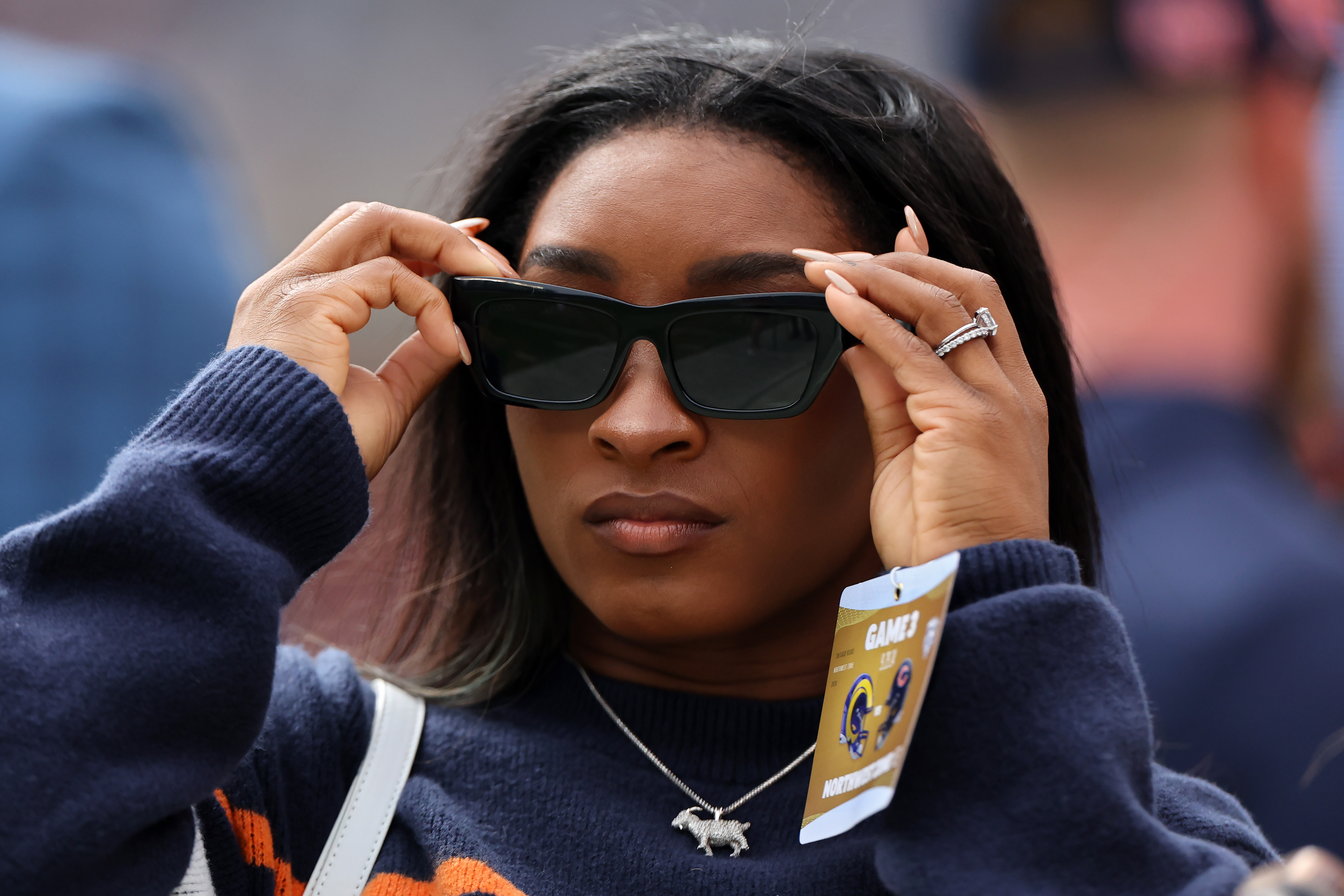
The presence of flags and vocal support for Vladamir Putin at the Australian Open seems to be growing by the day, despite a ban from the event organizers.
Flags are traditionally a staple of the season-opening Grand Slam. However, the governing body of tennis in Australia announced a ban against flags from Russia and Belarus -- Putin’s main ally -- following multiple appearances, including a first-round match between a Ukrainian and Russian player, and complaints by Ukrainian officials.
The ban has not deterred Putin’s fiercest supporters in Melbourne, some of whom were recorded standing on the steps of Rod Laver Arena with flags featuring Putin’s face.
Get top local stories in Southern California delivered to you every morning. >Sign up for NBC LA's News Headlines newsletter.
According to Yahoo, some of these fans were chanting “Serbia-Russia” following Novak Djokovic’s defeat of Andrey Rublev.
Djokovic’s dad, Srdjan, has also garnered criticism after posing with a fan wearing a shirt with the pro-war “Z” symbol that’s associated with support for Russia’s invasion.
Are Russian and Belarusian athletes allowed to compete at the Australian Open?
Sports
Get today's sports news out of Los Angeles. Here's the latest on the Dodgers, Lakers, Angels, Kings, Galaxy, LAFC, USC, UCLA and more LA teams.
The Australian Open took a page out of the U.S. Open’s book by allowing Russian and Belarusian athletes to compete without national affiliation. This means no visible signs of national allegiance such as national anthems or flags next to their name on the TV broadcast or draw sheets.
Are there any Australian Open finalists from Russia or Belarus?
Two of the remaining six single’s athletes are competing without national affiliation and a third has close ties to Russia.
Serbia’s Novak Djokovic eliminated Russia’s Andrey Rublev in the quarterfinals, leaving Karen Khachanov as the lone Russian in the men’s field.
Rublev, the No. 6 player in the world, made international headlines in the days immediately following Russia’s invasion by writing “No War Please” on a camera following a match. Rublev said he considered Wimbledon’s ban to be “unfair,” but said he could understand the decision and has continued to advocate for peace.
Khachanov has stayed relatively quiet on the matter of Ukraine and Russia, but still sent political shockwaves during his time in Australia. Following his fourth-round win on Saturday, the 26-year old of Armenian descent wrote a pro-Armenian message on the camera directed to people in Nagorno-Karabakh, a long-disputed territory that has been at war since 2020. Tennis officials from Azerbaijan responded with a letter demanding Khachanov be “punished” with “harsh measures” for his “heartfelt words.”
On the women’s side, Arnya Sabalenka is from Minsk, the capital of Belarus. She will face Elena Rybakina, who also has close ties to Russia, in the final. Rybakina has represented Kazakhstan since 2018 after representing Russia from 2013 to 2018. She was born in Moscow but Kazakhstan funded her tennis career, so she switched affiliations and acquired citizenship in 2018.
Is Elena Rybakina Russian?
The 2022 Wimbledon Champion was born and raised in Moscow and represented Russia until 2018, when she switched her allegiance to Kazakhstan.
Her nationality – and the country she represents on the court – came under the microscope last summer.
Two months after Russia’s invasion of Ukraine in February, the All England Club issued a ban of all Russian and Belarusian athletes at Wimbledon – the only Grand Slam to impose such a ban.
The decision was controversial because the WTA stripped the storied event of ranking points.
Rybakina, the No. 17-ranked player in the world, blew through the bracket and ultimately upset No. 3 Ons Jabeur in the Wimbledon final.
The then-22-year-old cited her year-old relationship with Kazakhstan, continuing to distance herself from Russia.
“I’m really happy to represent Kazakhstan. They believed in me,” she said following her semifinal win in London.



